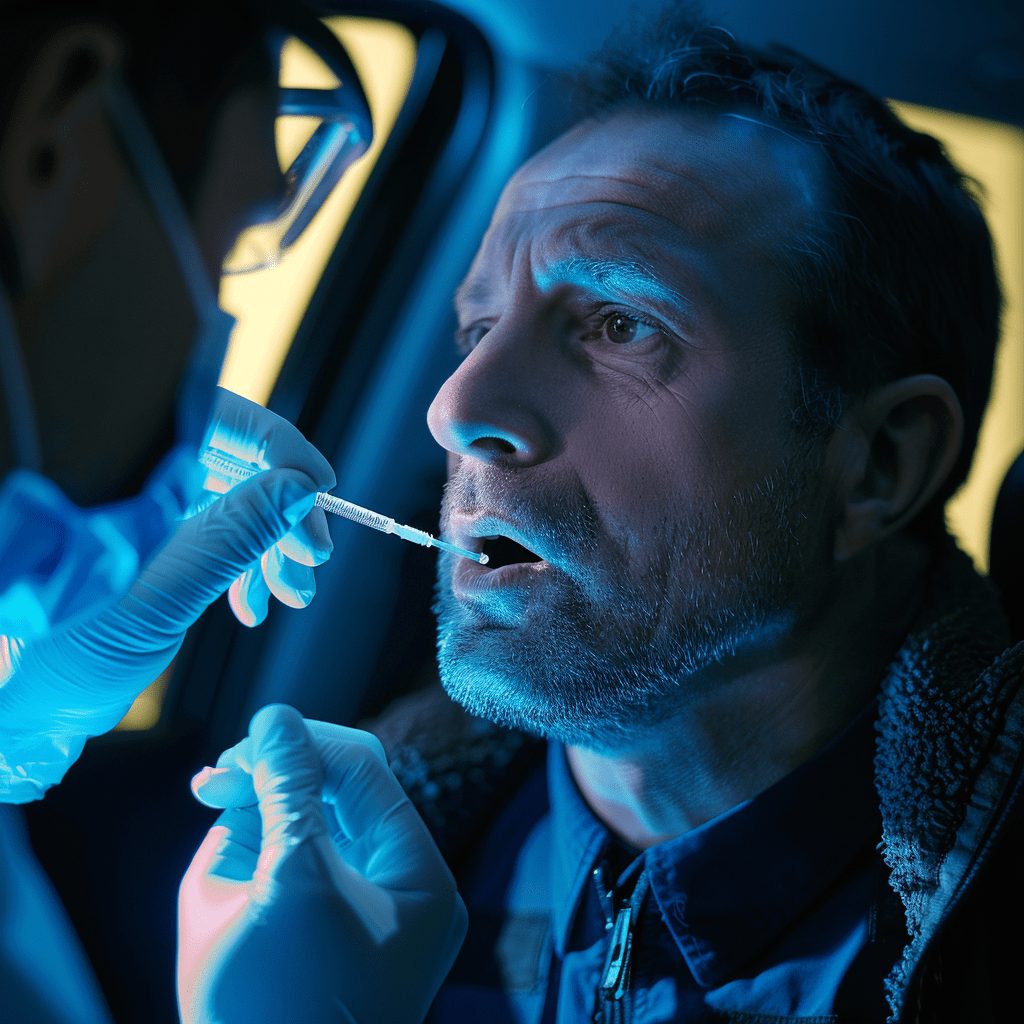It’s common for new users of CBD oil to worry about whether CBD shows up on drug tests in Australia.
These concerns have grown due to the increased use and adoption of CBD products in the country.
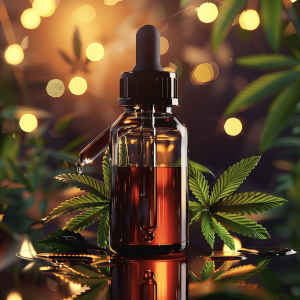
As more people buy them, an understanding of the risks of CBD oil concerning drug tests is critical to obtain.
Drug tests are standard practice in many areas:
- As part of a pre-employment drug screening or ongoing employer drug testing. Particularly common in sectors like construction and mining.
- Roadside drug testing is carried out on roads around Australia, which drivers can be subject to at any time.
- Court-ordered drug screens are frequently enforced for individuals on probation or who have specific good behaviour conditions.
Each of these tests checks for THC, not CBD. These cannabinoids are different but are often consumed together by people mistakenly.
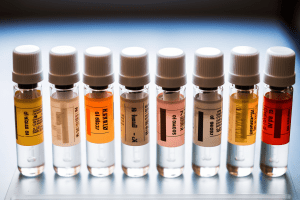
This is the risk of using products like CBD gummies, oils, ointments or capsules. If they contain THC, you will risk testing positive in a drug test.
The consequences of failing them can be very dire. These can include fines, loss of employment, loss of driver’s license, breach of court orders or even jail time.
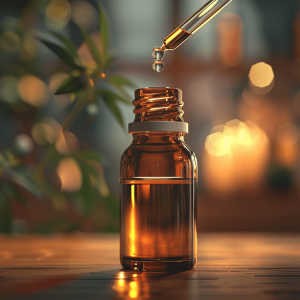
If you’re buying CBD oil in Australia, you must take precautions to avoid THC. This guide will help you understand this topic more deeply. We’ll cover whether CBD shows up on drug tests, how to prevent THC in your product, and added precautions for safety.
Contents
Does CBD Show Up on Drug Tests?
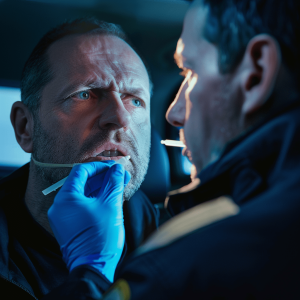
Pure CBD won’t show up on drug tests if you’re in Australia. The cannabinoid is not intoxicating, meaning it isn’t a cause for concern for authorities. As such, they don’t include it as a chemical to screen for in tests.
But often, CBD isn’t the only cannabinoid in a particular product. Many CBD tinctures, gummies, capsules or even creams will contain THC.
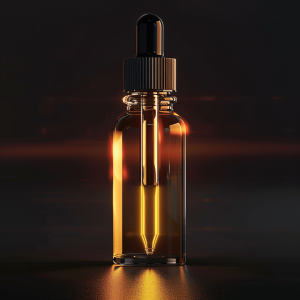
This can happen in a few scenarios, which we’ll return to.
But first, let’s uncover how these drug tests work and why CBD (on its own) isn’t a risk when screened.
How Drugs Are Screened
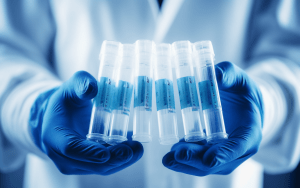
In Australia, drug tests check for the presence of metabolites in a person’s system that will indicate whether someone has consumed cannabis (THC). A metabolite is a chemical the body produces when the drug breaks down. It suggests the drug has been recently consumed if detected, which leads to a positive test result.
A few different tests can be used to check for these metabolites.
Where and how they are used will vary depending on the scenario.
- Roadside Drug Tests most commonly use immunoassay drug screens with very high accuracy.
- Pre-employment and employment drug screens are typically 10-panel screens from a urine sample (urinalysis).
- Probation drug screens similarly use urinalysis.
In each case, these tests use ‘antibodies’, which are chemicals that will react with specific drug metabolites to identify their presence in the test sample. This test sample could be from your urine, hair, saliva or blood.
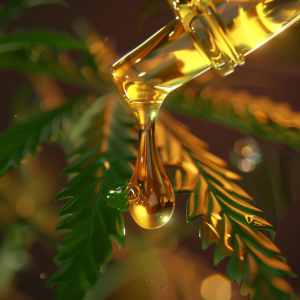
Common substances or metabolites screened for include:
- Cannabis metabolites (THC)
- Amphetamines
- Cocaine metabolites
- Opioids
The reason CBD won’t show up on a drug test is that (unlike THC) its metabolites aren’t screened for. Only THC metabolites are checked (using antibodies).
But this doesn’t mean someone using CBD oil won’t fail a drug test. If it contains even minute trace quantities of THC, a positive result could occur.
THC Risks
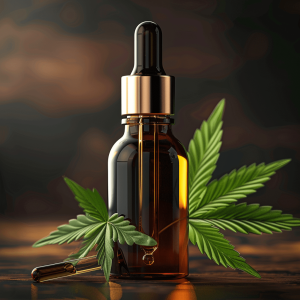
As mentioned, CBD won’t show up on a drug test. In contrast, the THC cannabinoid will.
It’s detected by checking for the THC metabolite known as TH-COOH.
TH-COOH is produced in the liver when the body breaks down THC.
Most drug tests have a ‘threshold’ level of the metabolite, the amount detected which indicates a positive result.
For example, immunoassay screens are typically positive if more than 50ng/mL of TH-COOH is found.
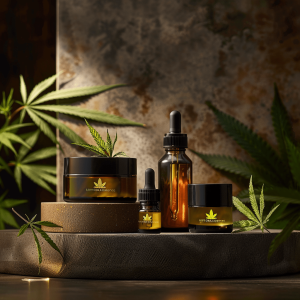
Often, a more sensitive follow-up screen is run to verify a false positive hasn’t occurred.
Fortunately, drug screens for TH-COOH have low cross-reactivity to other cannabinoids.
This means a false positive from using CBD, CBG, CBN or other minor cannabinoids shouldn’t occur.
In other words, providing a CBD product that is high purity (0% THC) isn’t going to cause false positive drug test results.
What makes the risks with THC much worse is that it remains in the body for a very long period.
THC’s Half-Life in the Body
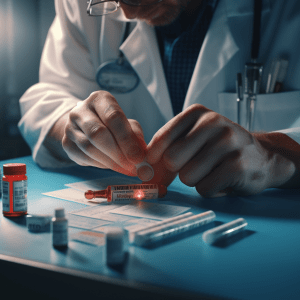
Consuming any quantity of THC from a CBD oil or other product mistakenly is dangerous because of its half-life.
This is how long it takes for half of the quantity of drug consumed to be cleared by the body.
THC is fat-soluble. It has a very long half-life as the body stores it in fat cells, which are slowly released until fully metabolised.

Additionally, TH-COOH is similarly fat soluble, which makes matters worse.
Both compounds can accumulate in the body over time if THC is consumed regularly (even if accidentally).
Even small amounts of CBD oil can mean a failed drug test in the weeks after using the product.
How Long Does THC Stay in Your System?
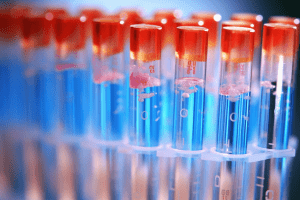
The duration that THC stays in your system is determined by how much THC you’ve consumed and how long ago.
Factors like your body size or weight, individual metabolism, age, and frequency of consumption can also influence this duration.
If you’ve only consumed THC once or intermittently, it’s usually detectable in drug tests for around three days after being ingested. This can vary too, however, depending on the specific test used.
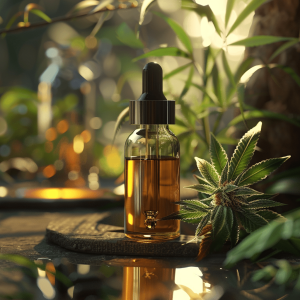
Those who have consumed THC regularly or over extended periods can expect it to stay in their system for weeks or even months.
Because THC and CBD are from the same source (cannabis sativa), they’re often both found together in cannabis-based products (including CBD oil). This can occur mistakenly or through intentionally formulating a product to contain both.
Let’s take a look at when CBD oil can risk you failing a drug test.
Will CBD Oil Cause a Positive Drug Test?
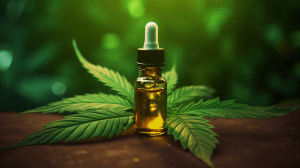
The risk that products like CBD oil pose for those who are drug tested is THC content.
High-purity CBD products produced using stringent quality controls and labelled correctly won’t cause risks.
However, risks can result from products that are mislabeled, accidentally contaminated, or full-spectrum formulated.
Mislabelled Products

Up to 70% of CBD products are mislabeled.
In other words, they don’t contain the compounds or ingredients they say they contain.
Often, this means these products will contain THC, even if labelled otherwise.
Mislabelling can be accidental or intentional.
Some retailers of CBD products don’t test their products or know what’s in them. They may unknowingly be mislabelling their CBD oil due to poor quality checks and controls. This is common amongst disreputable sellers who cut corners and don’t obtain laboratory product analysis.
Intentional mislabelling from unscrupulous providers is equally widespread. Often, these providers are seeking to sell more products. They may mislabel their CBD oil on purpose to help it sell. Misleading their customers means they profit at the risk and expense of their customers.
THC Contamination
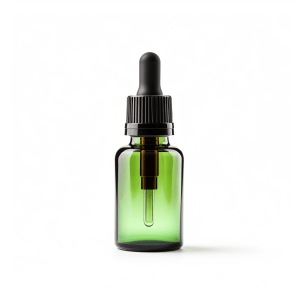
Another risk for people who are drug tested and use CBD oil in Australia is contaminated products.
These are poorly produced CBD products that have THC in them.
This contamination can happen in several ways:
- Cross-contamination can occur with CBD products produced using the same equipment or stored in the same containers as those with THC. This can inadvertently cause THC residue to contaminate CBD oil.
- Subpar extraction methods: rigorous extraction techniques are needed to produce pure CBD oil without any traces of THC in it. The best way to achieve this is by leveraging high-quality supercritical CO2 gas extraction. The usage of gas under high pressures and heat clears all THC traces from the formulation. Low-quality solvent extraction methods don’t have the same level of efficacy. These techniques are used by providers looking to save on extraction costs. However, they risk substantial quantities of THC contaminating CBD products that are produced using them.
- Lack of testing and quality control: testing during extraction and refinement enables a CBD oil producer to ascertain their formulation’s purity, strength and quality. High-accuracy laboratory tests can be applied to batch test an extract and understand what cannabinoids it contains. This is often used by manufacturers as a safety mechanism to prevent their products from inadvertently being contaminated with THC. However, low-quality providers tend to skip these critical testing controls.
Full-Spectrum Formulations with THC
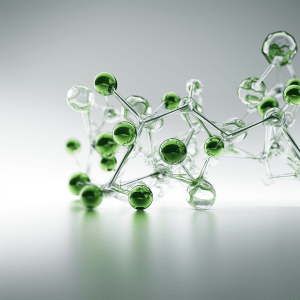
Another way that you can fail a drug test when using CBD oil is from full-spectrum formulated products.
There are several distinct formulations of CBD oil.
These differ based on their cannabinoid and nutrient content.
Full-spectrum CBD oil is one of these formulations. It’s risky to use if you’re being drug tested as it will contain some amount of THC in it.
In Australia, these products can have up to 0.3% THC concentration.
While this doesn’t sound like much, it’s enough to cause a positive drug test result in some instances.
Over time, the tiny amounts of THC can accumulate in your system, even if you aren’t aware of it. Subsequently, the metabolites of this THC consumption will be detectable on a drug screen.
In addition, full-spectrum CBD products have THC-A in them. THC-A isn’t intoxicating but can cross-react with the same antibodies used to test for TH-COOH (the THC metabolite). This exacerbates the risks of a positive drug test from a full-spectrum CBD oil.
Stories of people taking CBD products and failing a drug test for this reason are becoming increasingly common. Many of these individuals didn’t realise they were consuming traces of THC in their full-spectrum product.
Don’t get caught out. Avoid full-spectrum CBD oil if you drive or are tested for drugs regularly.
Precautions to Prevent a Failed Drug Test from CBD Oil
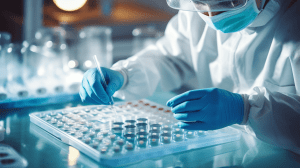
Now you’re aware of some of the THC risks from CBD products, let’s cover precautions you can take to mitigate them.
The good news here is that the risks of using CBD oil while being drug tested are entirely avoidable.
Understand the Tests
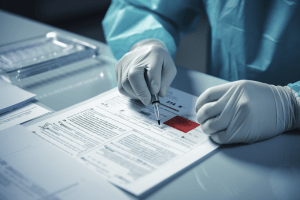
Learning more about the specific drug tests you’re subject to can help you mitigate the risks of failing them.
Not all drug tests are the same.
Some, like immunoassay screens used in Roadside Drug Tests in Australia, are extremely sensitive. These check for minimal amounts of TH-COOH in the body.
In contrast, older gas chromatography screening techniques are less accurate. They have a higher rate of false positives and incorrect results.
It is essential to learn the type of test you might encounter, how it is conducted, what it checks for, and in what concentrations.
Knowing the threshold quantity of THC in the test can also help.
Lower accuracy tests are more likely to be disputed or re-tested based on a false positive. Knowing the test can help you understand your options if you fail one. But it can also help you understand the risk levels to which you may be exposed.
Avoid THC-Contaminated Products
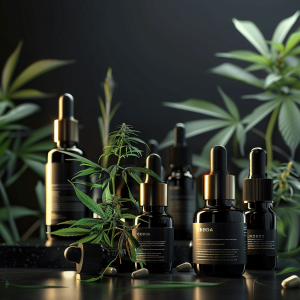
The most obvious way to prevent a failed drug test from CBD oil is not consuming THC.
While this sounds easy, it can be more challenging than expected due to the prevalence of THC-contaminated or mislabeled CBD products.
The only accurate way to prevent these risks is by doing extensive research and checks on the product you’re buying. This should include confirming the CBD shop you’re purchasing it from is reputable, trustworthy and has high-quality standards. Reviews and feedback from customers can help ascertain this.
Consider testing a product yourself using an at-home THC test kit to see whether it contains what’s on the label. This is an excellent method to help objectively verify whether a product contains THC. But it shouldn’t replace test results from an independent laboratory, which will be more accurate and definitive.
Choose CBD Isolate Oil
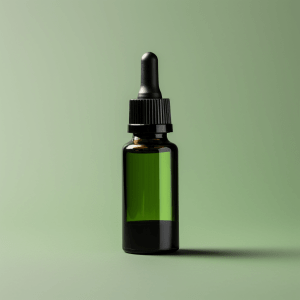
Full-spectrum CBD oil will contain both THC and THCA in trace amounts.
This makes it very unsafe to take if you’re drug tested.
But it doesn’t mean you can’t use CBD oil at all.
You need to choose CBD isolate products that are formulated to contain no THC.
They’re refined in a different way to increase their purity and eliminate THC traces.
As such, isolate CBD is safe to use even if you’re regularly drug tested. However, you must ensure the product isn’t contaminated or mislabeled.
Obtain a Certificate of Analysis

The only ‘true’ way of preventing your CBD oil from causing a positive drug test is getting a Certificate of Analysis (or ‘COA’) from your provider.
A COA is a high-accuracy list of the product’s ingredients and cannabinoid content.
It is supplied by an independent, third-party laboratory to ensure the results are objective (and not meddled with).
Importantly, obtaining a COA for your particular CBD oil will let you know whether it has any THC or THCA in it. You can then decide whether the risk level is acceptable or not for you.
Without a COA, though, you are flying blind. You could be consuming THC every time you take CBD oil.
A COA prevents the risks associated with mislabelled CBD products. Make sure you request one or get it before purchasing a product. It will give you peace of mind and keep you safe.
Can I Still Use CBD Oil if Drug Tested?
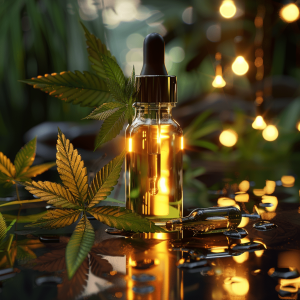
Providing you take the necessary precautions, it should be safe to continue using CBD oil while being drug tested.
Buying a high-quality CBD isolate that has been lab-tested and contains no THC will pose no real risk of a positive drug test result.
Even full-spectrum CBD products could be viable in some cases, providing they are not mislabeled and you aren’t using them frequently. These formulations require much more caution to use, though.
You’ll need to calculate how much THC and THCA you’re consuming with them, plus whether this puts you over the THC metabolite threshold of tests you’re subject to. Factoring in the accumulation of these cannabinoids and metabolites is also essential. The higher the frequency you use them, the greater your risks are over time because of their fat solubility.
Avoiding full-spectrum CBD oil entirely will be a more straightforward approach here for most people.
Consequences for Getting it Wrong

Failing a drug test generally has detrimental consequences.
Depending on why you’re being tested, these consequences will vary.
For instance, if you’re being screened as part of a pre-employment drug test, you’ll lose your employment opportunity.
If you fail a Roadside Drug Test in Australia, the repercussions can be substantially worse.
You could be fined, have your car impounded, lose your license or even be jailed. The regulation in Australia has a zero-tolerance approach concerning the presence of THC metabolites in a driver’s system. If any number of them are found on a roadside screen, it’s considered driving under the influence. The authorities won’t care if this was because of mislabeled CBD oil. You’ll be charged with a DUI and punished accordingly.
Miscalculating the risks or being inadequately prepared for these situations is very unwise.
Make sure that you don’t get it wrong. Prepare ahead of time, research, plan and take action if necessary.
Conclusion
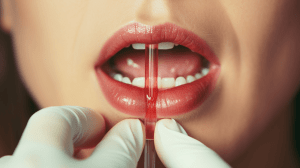
CBD won’t show up on a drug test in Australia.
But there are still risks in using CBD oil if you’re going to be drug tested.
These risks are from CBD. They occur due to THC, which is checked for in drug testing protocols.
All drug screens look for metabolites of THC. This includes tests performed for employee screening as part of court-ordered probation drug tests or roadside drug testing.
THC is particularly dangerous because it remains in your body long after it has been consumed. It can be detected weeks after you’ve taken it.
But often, people using CBD oil take THC accidentally because of mislabeled, poorly made, or full-spectrum formulated CBD products.
Staying away from these products is vital for your safety.
You can still use CBD oil if you are drug tested. But you need to ensure it’s entirely clear of THC from a lab analysis. Endeavouring to only purchase from trustworthy sellers and sourcing CBD isolate-formulated products is additionally critical.
Don’t risk getting caught with THC in your system. The consequences of this will be unpleasant or even life-altering (negatively). Taking sensible precautions is very important if you are using CBD oil and getting drug tested.
FAQs
Full-spectrum CBD products, which are derived from the whole cannabis plant, contain a range of cannabinoids, terpenes, and other naturally beneficial compounds. These products will contain trace levels of THC. THC must be less than 0.3% of the product’s concentration under Australian guidelines. This amount of THC won’t intoxicate you but can cause risks of a positive drug test. Full-spectrum CBD oil can also contain THCA, which has cross-reactivity with THC tests and can cause false positives. If drug testing is a concern, opt for CBD isolate oils that have been independently lab-tested.
A 10-panel drug screen checks for commonly abused illegal substances such as Methamphetamine, THC and Opiates. CBD isn’t tested for in these screens. It’s not psychoactive or intoxicating, so it doesn’t pose risks for users.
Vaping CBD won’t show up on a drug test, providing the vaped product contains no THC. Many CBD vaporisers are mislabelled and contain quantities of THC, which can cause a positive test result. These risks also exist for full-spectrum CBD vapes, which can contain minor amounts of THC in them. It’s best only to use CBD isolate products to prevent these problems. You should also seek third-party lab testing for any vaporiser you purchase to avoid accidental THC consumption.
References
- Pennmedicine.org. (2017). Penn Study Shows Nearly 70 Percent of Cannabidiol Extracts Sold Online Are Mislabeled – PR News. [online] Available at: https://www.pennmedicine.org/news/news-releases/2017/november/penn-study-shows-nearly-70-percent-of-cannabidiol-extracts-sold-online-are-mislabeled.
- Forbes Health. (2023). Does CBD Show Up On A Drug Test? [online] Available at: https://www.forbes.com/health/cbd/does-cbd-show-up-on-a-drug-test/#:~:text=Long%20story%20short%2C%20yes%2C%20CBD.
- Chronic Therapy. (n.d.). Will CBD Oil Show In A Drug Test In Australia? [online] Available at: https://chronictherapy.com.au/blogs/news/will-cbd-oil-show-in-a-drug-test-in-australia.
- adf.org.au. (n.d.). Roadside drug testing – Alcohol and Drug Foundation. [online] Available at: https://adf.org.au/insights/roadside-drug-testing/.
